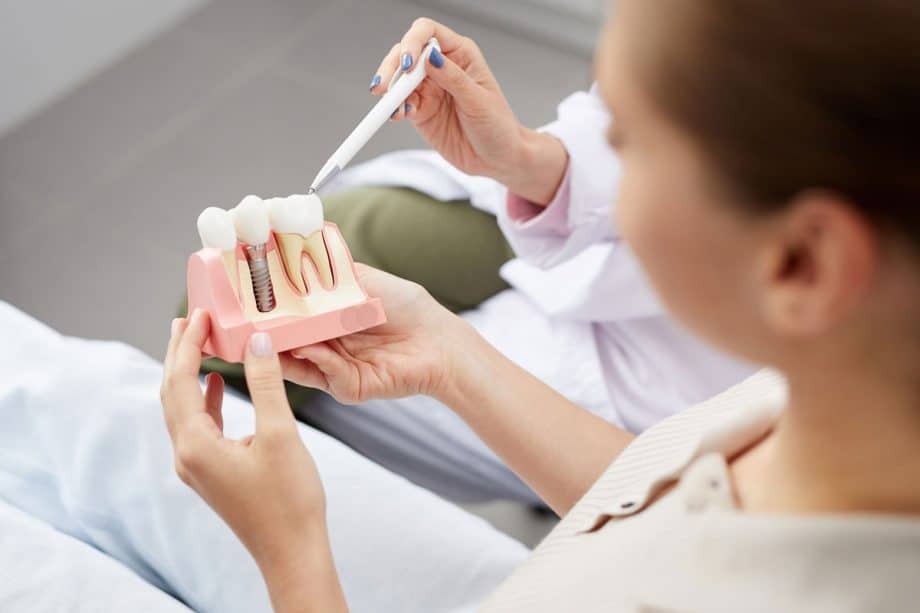Dental implants are an investment in your oral health. As with any investment, patients considering dental implants tend to do a lot of research to ensure that they’re worth the cost. Most want to know how long dental implants last before they make the decision to schedule surgery, but the answer to this question is complicated.
What Is a Dental Implant?
First, it’s important to clarify what we mean by dental implants. The term is often used as a catch-all for any implant-supported restoration, but technically speaking, a dental implant is only the implant screw or post that is surgically placed in the jaw to replace the root of your missing tooth. The piece that replaces the visible portion of your missing tooth or teeth is a prosthesis or restoration—it could be a crown, bridge, or denture. Most implant-based restorations also have an abutment, which is a piece that connects the dental implant to the restoration.
The Lifespan of Dental Implants
When you search online for the answer to how long dental implants last, you’ll find websites saying that they last forever, for a lifetime, or for several decades. These answers are all correct, but it’s important to understand that it’s the dental implant that lasts a lifetime, not necessarily the restoration. We pride ourselves on our transparency with our patients, which is why it’s important to us that you have a realistic understanding of how long dental implants last.
Patients who follow aftercare instructions, have good oral hygiene practices, and follow up with their dentist regularly have success rates of 90 to 95 percent with dental implants. Once osseointegration occurs (the process in which the jawbone and your dental implants fuse together), it’s very likely that your dental implants will last the rest of your life and you will never need to have them replaced.
The Lifespan of Implant-Supported Prostheses
While you might expect that an implant-supported prosthesis would last as long as any other dental prosthesis, the stability of dental implants means that it’s common for them to last longer. Still, you can expect that they will need to be replaced at some point, with crowns commonly lasting a decade or more and implant-retained dentures lasting between five to 10 years.
Factors that impact the lifespan of an implant-supported restoration include the material used to make it, its location in your mouth, your oral hygiene practices, and oral habits like jaw clenching or teeth grinding. A prosthesis that receives a lot of wear will need to be replaced sooner.
Avoiding Dental Implant Failure
Dental implant failure is rare after osseointegration, but that doesn’t mean it can’t happen. Good oral hygiene and dental implant maintenance are key to preventing this from occurring.
The most common cause of dental implant failure after osseointegration is a condition called peri-implantitis, which is characterized by inflammation around the implant that damages the soft tissue and supporting bone. Diligent brushing and flossing, as well as regular professional dental cleanings, will help keep the bacteria that causes this infection under control. Smoking and heavy alcohol consumption can also increase the likelihood of dental implant failure, as can bad oral habits like chewing on ice or using your teeth to remove tags or tear open packaging.
Schedule an Appointment at Stuart Prosthetic Dentistry
By choosing a skilled prosthodontist, you can maximize the lifespan of your dental implants. To schedule a consultation with Dr. Tyler, contact us today at 772.286.1606.

